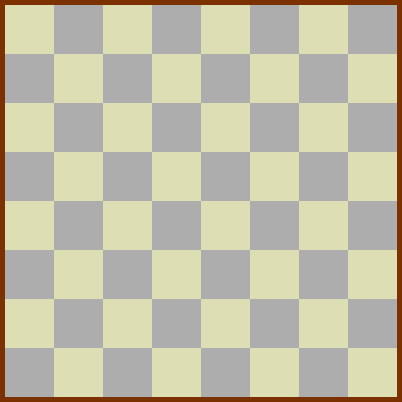

Blindfold Chess is a way to play chess, whereby players don't have the physical pieces in sight, and the moves are communicated audibly, or otherwise, to the players. The earliest mention of blindfold chess, in Arabic sources, is from the seventh century. Blindfold chess has been used as a means of handicapping a master when facing one or many weaker opponents. In February 1925, World Champion Alexander Alekhine played blindfold against 28 players simultaneously, with the result of 22 wins, 3 draws and 3 losses. This record was bettered in 1947 by the Polish master Miguel Najdorf, when playing blindfolded against 45 opponents, with the result of 39 wins, 4 draws and 2 losses. This feat is still considered the most impressive in the history of simultaneous blindfold games. Blindfold chess tournaments are held throughout the year, the most notable event being the Melody Amber Tournament in Monte Carlo. This event attracts many of the world's chess elite. In the 2005 blindfold tournament, 1st prize was awarded famous Indian GM Viswanathan Anand.
To play blindfold, and to read chess books without board and pieces, are regarded effective methods of training chess. Although many sources view it as a method of increasing one's playing strength, simultaneous blindfold exhibitions were officially banned in 1930 in the USSR as they could be injurious to health. To avoid chronic brain damage this program lets you view parts of, or the entire piece set, in the form of anonymous markers. Having the position of the pieces in sight makes it considerably easier. To make only the pawn positions visible is, for the unexperienced blindfold player, probably good enough.
See also Wikipedia: Blindfold Chess
You can download my free Blindfold Chess program here (updated 2007-02-19), but you must own the software Zillions of Games to be able to run it.
Note! I have also created a DOS program ”BlindChess”, which can be freely downloaded here
• Don't miss my other chess variants.
© M. Winther 2006